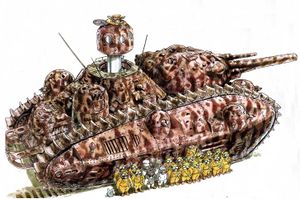Moselle
Aux armes, citoyens
Formez vos bataillons
Marchons, marchons!
History
Geography
Politics
The Mosellan political stage has never been united in harmony but in the aftermath of the Great War it has become sharply and bitterly divided. Although the moderate Mosellan People's Party under Ballerat still maintains some degree of control through a coalition with the Social Democrats their rule is increasingly threatened by more radical elements. As the harsh terms of peace imposed by Clovia continue to take their toll on the Mosellan economy the leaders who honor those terms are not winning any popularity contests on the streets.
The Left
New Socialists: The New Socialists are the largest and most powerful of Moselle's far left parties, and have rapidly expanded their ranks since they broke away from the Social Democrats six years ago. Claiming that the Social Democrats have betrayed the workers, the New Socialists advocate the complete dismantlement of Moselle's capitalist economy and republican political structure. In the present climate, more and more are willing to listen to what were once marginalized radical ideas.
Social Democratic Party: The Mosellan Social Democrats have over the past several decades moderated their politics greatly, and in 1997 they joined with the People's Party to form the present embattled coalition government. They generally advocate reform and renewal of the present government and expanded social programs, but have lost considerable support as several leading party members were part of the Great War peace delegation.
The Center
Mosellan People's Party: Once unquestionably the most powerful of Moselle's political parties, the People's Party are the staunch defenders of the republican values that the Mosellan Republic was founded on. Despite having stubbornly clung to power even after having taken most of the blame for Moselle's defeat in the great war, it seems that the People's Party is on the way out sooner rather than later.
The Right
Conservative Party: Bankrolled by rich industrialists and members of the old aristocratic families, the Conservatives have often been able to use their considerable resources to make up for the fact that they generally can't match more socially progressive parties in their available supporters. Despite the fact that many of its party leaders profited from the war, the Conservatives were able to draw many voters away from the ruling parties in the first years after the defeat but now it seems they are losing their supporters once again, this time to the far-right National Front.
The National Front: Anti-Clovian, Anti-Republican, Anti-Communist. The National Front is the only large party that can match the New Socialists in the amount of sheer barely contained radicalism found in their party platform. Founded in 2004, the Front has won huge victories in provincial elections and gained a sizable foothold in the National Assembly. If they could make common cause with either the Conservatives or New Socialists even for a moment, the existing government would fall within a matter of months.
Royalist Alliance: Although but a shadow of what they once were, the Mosellan Royalists still achive the occasional political success. In the present bad times a surprising number of people look back to the long lost monarchy with blind romantic nostalgia.
Military

